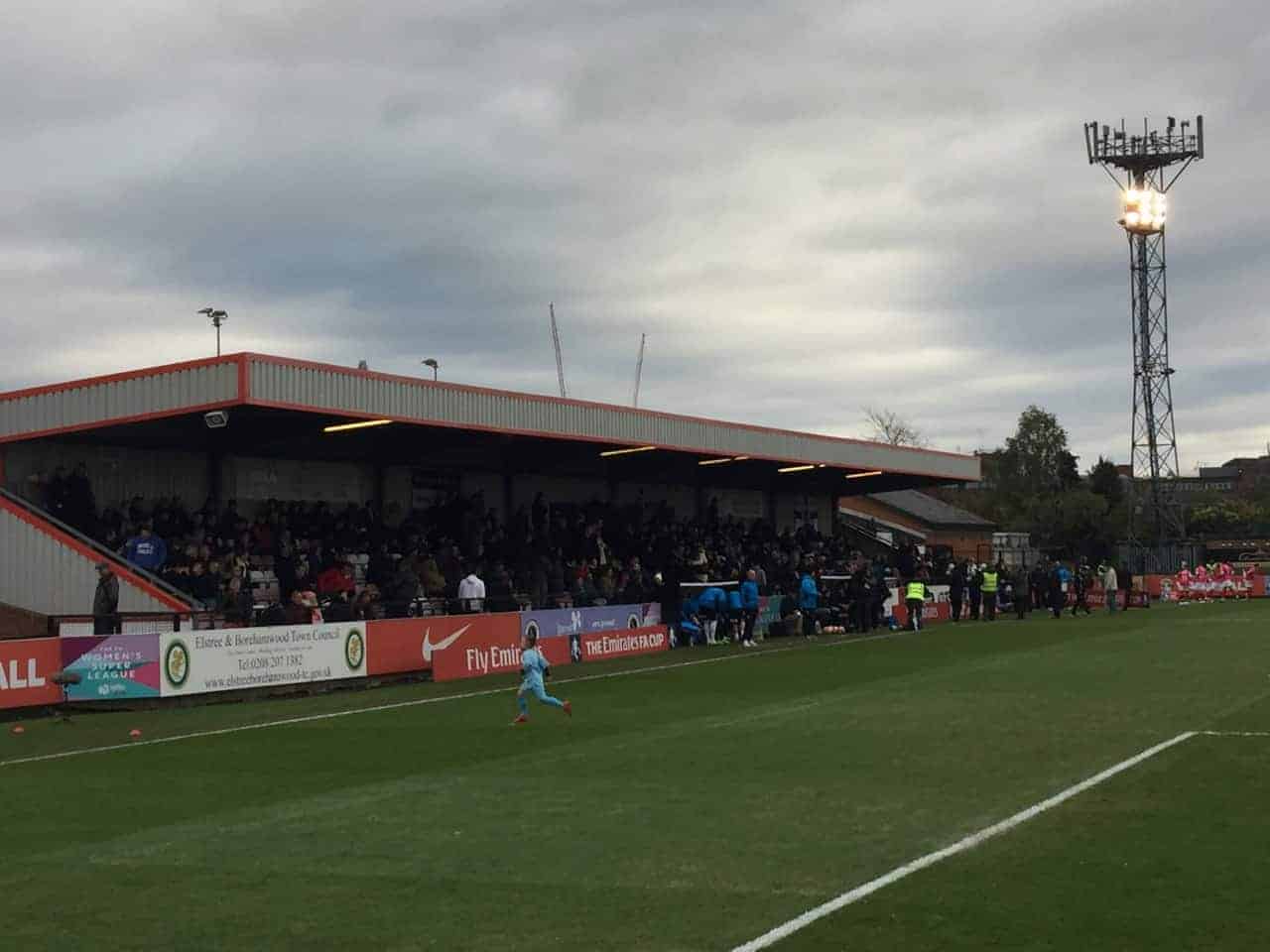Non-League Groundhopping
If the recent drama about the European Super League got you discouraged about the state…

The same is true of the financial tsunami that is the Covid-19 pandemic as it regards the finances of football. The higher you go, the safer it seems, and those below are struggling to survive a situation that is rapidly approaching its crux.
Turn on your television, and you’ll see the Premier League, Football League, and FA Cup marching along, with the only visible difference being empty stands and perhaps a bit less transfer drama. But all is not actually well with the big clubs: Arsenal have taken out a loan of £120 million ($160 million US), Everton reported a loss of £140 million ($193 million US), and The Guardian reported that major European clubs stand to lose 1 billion Euro, or $1.2 billion US, for this season.
Here’s Our FAQ on the Pandemic and English Soccer
The thing is, those clubs actually have most of their revenue, since it comes from television. So as long as they can field enough players and coaches to get a game on, they will continue to do so, lest they not only lose their revenue but have to pay the networks back for lost programming — in other words, tumble from their relatively safe perch and wind up in the deep water below.
Just below that top level, the Football League is only upright at the moment because the Premier League bailed it out to the tune of £250 million ($346 million) in grants and interest-free loans.
Below that, in the world of non-league football, things get very ugly, very quickly. And there, the financial tsunami that is Covid has exposed the usual divisions and inequalities along the usual economic, competitive and even geographical fault lines.
For more on the English football
league structure, read this post or watch our video:
The core problem below the Football League — and even there, were it not for the Premier League’s generosity — is the complete lack of television revenue. Clubs below tier 4 of the pyramid depend entirely on gameday sales: tickets, scarves, pies, beers, etc. Needless to say, that has all dried up for most of a year, and completely again since October.
But the cost of putting on a game remains essentially the same. While you can get away with fewer stewards and shop workers, you still have to pay players, coaches, utility companies, etc. That’s why all of non-league football abandoned the entire 2019-20 season in April of 2020.
FAQ on Travel to the UK During Covid
They tried again for the 2020-21 season, but when major lockdowns returned in October 2020, even the limited attendances to that point were ended, leaving non-league football again with bills to pay, debt to service (in most cases), and zero revenue.
In tiers seven and down — that is, below the National League at tiers 5 and 6 — all league play stopped at that point, and it hasn’t returned, although it went forward in the various cups. This led to, for example, a bizarre situation like eighth-tier Marine FC hosting Tottenham in a magical FA Cup draw — but in an empty stadium and after not playing a game for two months.
The National League, however, soldiered on, because they got a loan-and-grant package from the national lottery. But that was only for three months, so it has expired, and with still no bums in seats, things are falling apart.
For the second weekend of February fixtures, many clubs simply refused to show up, citing travel and other expenses. The league threatened to sanction them, leading to outright revolt among many club owners.
Even here, though, the fault lines were exposed. The National League clubs mostly want to play on; of course, they have bigger budgets, and some have aspirations of promotion to the Football League. They see the high ground and want to seize it. The smaller outfits in the sixth-tier National League North and South largely want to walk away from the season. And below that, nobody has played a league game since October.
There’s even a very English geographical split, with southern clubs more likely to support finishing the season than northern ones.
Update 2-18-2021: The National League has decided to continue this season, but NL North and South have abandoned their seasons. Report by the BBC here.
Looming over all of this, of course, is the murky dance between virus and vaccine. The government has set February 22 to announce a “roadmap” to the lessening of restrictions, but many clubs in tier six and below say they might not last that long if they are forced to play. Some have even dropped out of the FA Trophy, which is rather bizarrely trying to stumble over the finish line.
A National League vote is set for the end February on how, or whether, to continue. The rest of the leagues say they will reconvene after the government’s February 22 announcement. And whether any more money is coming from anywhere is unsettled, to say the least.
From here, it seems likely the whole season of non-league football will be declared null and void, like the 2019-20 season: no trophies, no promotions, no relegations. Perhaps the National League at tier 5 will try to finish, but convincing clubs in the lower half of the table to continue without revenue so two of their colleagues might make the Football League will be a very tough sell.
Like so many things after a tsunami of any sort, folks just have to try and stay above the water, then wait for it to recede, see who and what survived, and push on from there.
Post Comments